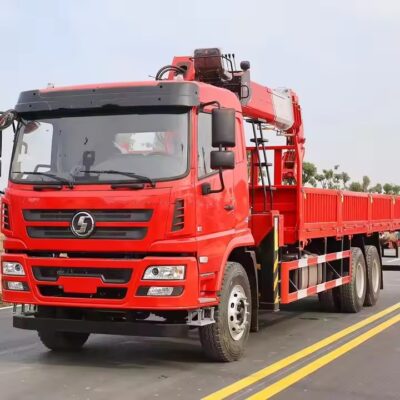Քարշակs play a crucial role in clearing accident vehicles, handling illegal parking, and participating in emergency rescues. Given the urgent nature of their work, it’s essential to improve their efficiency to ensure rapid response. Here are some key strategies:
1. Efficient Command and Dispatch System
Quick Decision Making: When the command center receives information about an accident, it must quickly evaluate the road conditions, vehicle size, cargo, and damage extent. This allows for the appropriate քարշակ to be dispatched without delay.
Nearby Vehicle Mobilization: To save time and resources, it’s vital to mobilize the nearest available քարշակս. The dispatcher should have a comprehensive view, a strong sense of responsibility, and quick decision-making capabilities to coordinate the response efficiently.
2. Optimizing Basic Vehicle Functions
Multifunctional Քարշակս: Modern քարշակs are designed to handle various traffic accident scenarios. Այնուամենայնիվ, due to their relatively short development history, many technical challenges are still being explored. While the goal of multifunctionality is not immediately achievable, basic functions like lifting, towing, rotating, and winching are essential.
Cost and Configuration Balance: Due to cost constraints, not all քարշակ units are equipped with comprehensive configurations. Այնուամենայնիվ, ensuring that the basic functions are robustly equipped can prevent the need for multiple քարշակs at a single accident scene, saving time and enhancing efficiency.
3. Specialized Equipment Coordination
Equipment for Rare but High-Risk Scenarios: Some towing cases, like gas leaks or chemical spills, require specialized firefighting and chemical protection equipment. Having these tools pre-equipped ensures readiness for complex and risky rescues.
Essential Tools for Diverse Situations:
- Electric Saws: For rescuing trapped individuals at accident sites.
- High-Power Lighting: For nighttime operations.
- Traffic Cones: Essential for traffic control within the քարշակ‘s operational range.
4. Ensuring Operator Quality
Professional Training: Operators must be professionally trained and certified. Regular training and case analysis sessions can enhance their skills and preparedness.
Operational Proficiency: Mature operators should excel in:
- Understanding vehicle performance.
- Skillfully using tools.
- Protecting themselves and avoiding potential dangers.
- Preserving accident sites and ensuring the safety of accident victims.
- Minimizing secondary damage to the rescued vehicles.
- Avoiding traffic congestion and public property damage.
5. Coordination with Functional Departments
Support from Traffic Management and Police: Քարշակ operations, while essential, can disrupt traffic flow. Their actions should be supported by traffic management and police departments to ensure smooth operation.
Accident Site Protection: Traffic management and police departments should help in protecting the accident site and managing the flow of people and vehicles during the clearing process.
Public Cooperation: Accident drivers, ուղեւորներ, and passing vehicles should cooperate with the police and follow directions to ensure safety and efficiency.
Եզրակացություն
Improving քարշակ efficiency involves coordinated efforts across multiple facets, including command and dispatch systems, vehicle functionality, specialized equipment, operator training, and support from functional departments. By focusing on these areas, քարշակs can achieve “flying” speed in their response times, ensuring effective and rapid clearance of accident scenes and emergencies.









